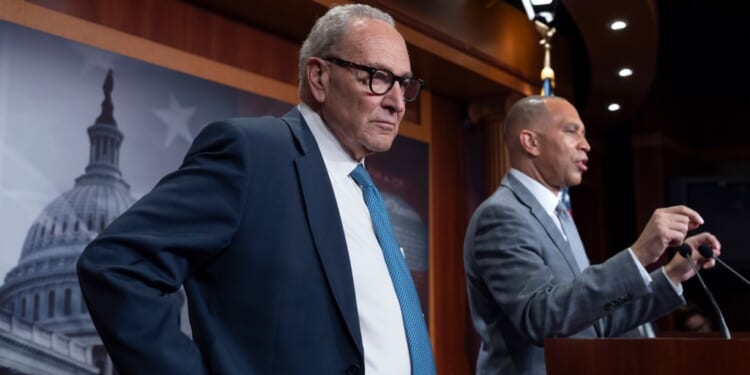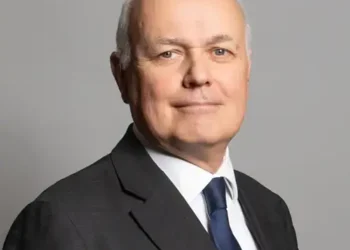For the second time in two weeks, the Senate rejected dueling proposals to fund the government, all but guaranteeing a shutdown at midnight.
Senators voted 55-45 on Tuesday against a House-passed measure to keep the government open for another seven weeks, short of the 60-vote threshold needed to clear the filibuster. The bill was “clean,” meaning a simple extension without “poison pill” provisions, but Democrats have used the funding fight as leverage to extract concessions on healthcare.
In a separate 47-53 vote, the Senate voted down a Democrat-led funding bill that would have permanently extended expiring Obamacare subsidies and rolled back Medicaid reforms in President Donald Trump’s tax law.
The outcome is a repeat from two weeks ago, when Senate Majority Leader John Thune (R-SD) put both proposals on the floor, only for them to fail along similar margins. Except time is now running out on government funding, with the votes taking place hours before the shutdown deadline.
Sen. John Fetterman (D-PA) was the lone Democrat to vote for the GOP bill earlier this month, but on Tuesday, he was joined by two other Democratic-caucusing senators: Angus King (I-ME) and Catherine Cortez Masto (D-NV).
Sen. Rand Paul (R-KY), a fiscal hawk, was the only Republican to buck his party and vote no.
Ahead of the vote, party leaders accelerated a blame game that cast the other side as being at fault for a shutdown. Congressional leaders met at the White House on Monday for a last-ditch meeting on funding with Trump, but both sides walked away, declaring that a deal was nowhere in sight.
On the floor, Senate Minority Leader Chuck Schumer (D-NY) cited a Morning Consult poll showing Republicans were more likely to be blamed for the shutdown, calling a contradictory survey from the New York Times “biased.”
“I don’t always believe the New York Times,” said Schumer, who hails from New York, as Republicans laughed. “You can be sure of that. Neither do you.”
More broadly, Democrats say they don’t trust that Republicans will extend the enhanced Obamacare subsidies, which expire at the end of the year, and have demanded that the negotiation be resolved as part of government funding.
GOP FIGHTS FOR UPPER HAND AS WASHINGTON BRACES FOR GOVERNMENT SHUTDOWN
Republicans, for their part, note that Democrats have previously chastised them for refusing to accept simple funding extensions and have framed the bill as a way to resume a bipartisan appropriations process.
“Something I might add that never happened when the Democrats were the majority last year, we never considered an appropriations bill on the floor,” Thune said shortly after Schumer. “Not a single one on the floor.”
In March, Schumer caved to a similar GOP bill, handing Republicans the votes to overcome a Senate filibuster under the premise that Trump would have greater authority over how the government is run during a shutdown.
Schumer, who faced blowback from his left flank over the March vote, has nonetheless aligned himself with House Democrats this time in opposing the measure, known as a continuing resolution, even as others in his party maintain that concern.
“This administration does not care about Nevadans, but I do. That’s why I cannot support a costly shutdown that would hurt Nevada families and hand even more power to this reckless administration,” Cortez Masto said in a statement explaining her vote.
Earlier in the day, Democrats attempted to pass their version of the funding bill on the House floor, but the measure was blocked by Republicans.
WHAT HAPPENS DURING A GOVERNMENT SHUTDOWN?
Speaker Mike Johnson (R-LA) sent members home after the House passed the GOP bill on Sept. 19, effectively declaring there was nothing further to negotiate, but Democrats have used their absence to paint leadership as derelict as the shutdown deadline approaches.
The last shutdown took place in 2018, during Trump’s first term, and lasted 35 days.

















